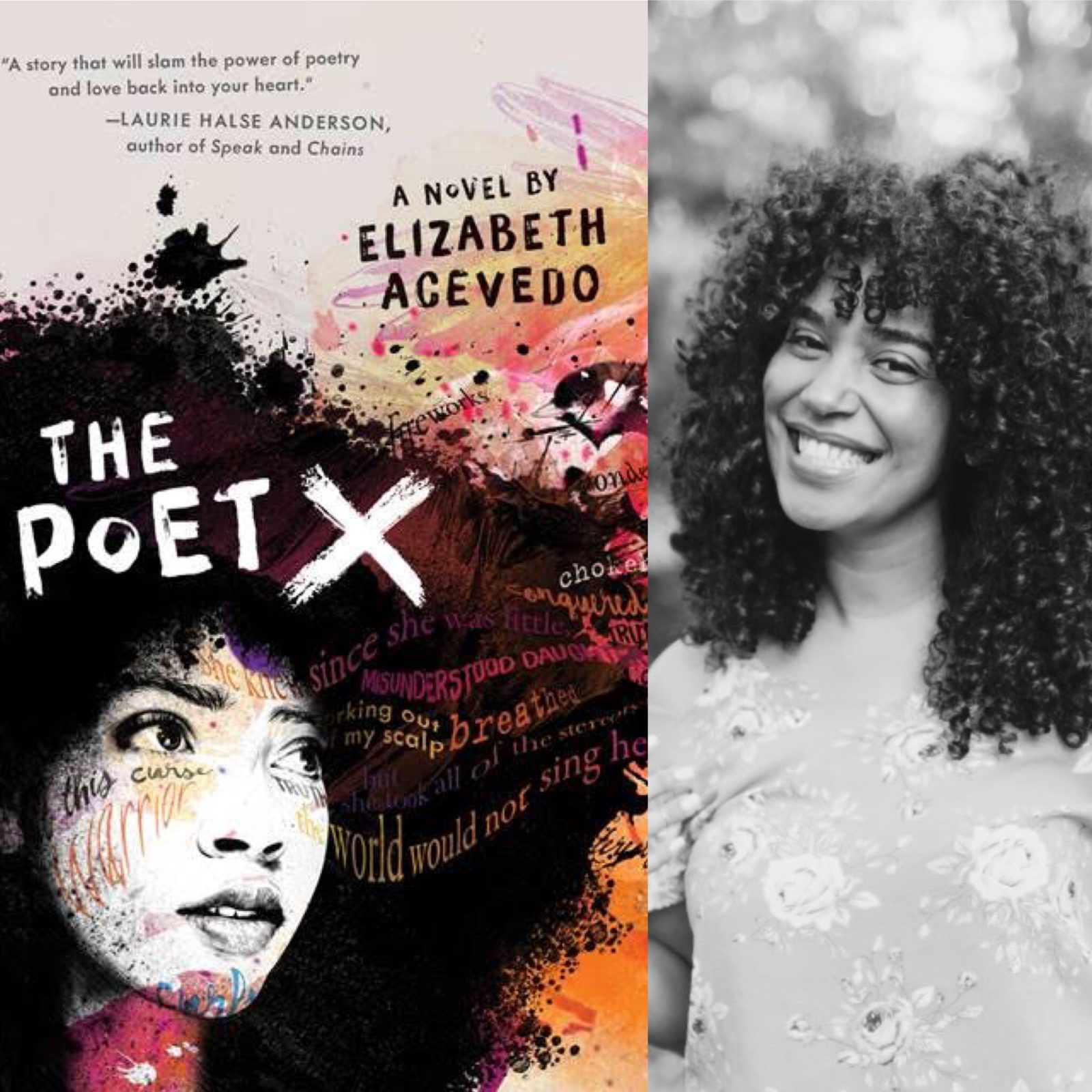
Back in middle school my boyfriend Carlos grabbed my hand right before the school bell rang. Hoy te beso, he promised. We’d been boyfriend and girlfriend for weeks, which in eighth grade might as well have been years. And during those weeks I’d masterfully avoided his mouth. That day, though, his promise followed me all day, kept me riled up. Anticipation like sap running down the ridges of tree bark, slow motion stickiness thickening my vision: blackboards nothing but blurs. I evaded those sweet, thin Puerto Rican lips on purpose. Everybody thought I was one of those girls, que no son facil. When in truth it was all front. How to tell him I’d never been kissed? Later in the day, when he finally cornered me in the stairwell, amidst the rolling eyes of our friends, who kept watch by the doorway, I pretended to push him away, all while really pulling, his earth-marble-blue eyes warm and cold at the same time. There’s no forgetting the moment his tongue entered my mouth, how the entire world stood still and sped up at once, how awe escaped my body and went up, up, up the stairwell, expanded outwards blasting our friends out of the way, forceful enough to blow JHS 43 right off the map of Harlem and put us two on top of something hot. Maybe the sun? My friends finally pulled me away. Danger roamed nearby. Carlos was all eyes, widening in surprise, then squinting with a hunger I’d never seen before. He didn’t seem to mind I didn’t know what to do with my tongue. Amazed and dizzy, I let myself get dragged away. Already, loosened.
While reading Elizabeth Acevedo’s daring debut novel The Poet X, I was struck by how much my teenage self would have benefited from reading this book. Emotions during those teenage years were so big, each conflict gargantuan in nature, and loneliness—even for a popular girl—the norm. We witness the sweetness and loyalty of friendship through Xiomara’s dynamic with Caridad, her childhood best friend. We are thrust back into our very own sexual awakening (oh, Carlos!) through the excitement and sadness of Xiomara’s first love.
Acevedo’s novel-in-verse explores themes common to Young Adult Fiction, yet the freshness of the voice is startling: this is a uniquely Dominican story told through the lens of an American point of view. Our protagonist is 15-year-old Xiomara Batista, who comes of age as the female half of a fraternal twin set with Dominican immigrant parents. What is most moving in the novel—and necessary—is Xiomara’s struggle with identity. There is a societal expectation she be a fighter, we learn this very early on, but Xiomara’s innate desire isn’t that (though she’s damn good at it). Instead, it is to be a poet and a storyteller. Xiomara’s journey from fighter to spoken-word poet is the remarkable story at the heart of this book, and it is how she finds her voice and discovers it echoes that of so many others.
Acevedo is thoughtful in challenging gender norms from the outset. An ultra-conservative mother pushes the conventions of religion and gender on an ever-rebellious Xiomara who isn’t having any of it. Xiomara’s twin brother, Xavier, reaps the privilege of being male at home but out in the world he’s a misfit. Xiomara tenderly refers to her brother as “twin” for the entirety of the novel because “Only I can call him that.” Twin is timid. Xiomara tells us:
“My hands learned
how to bleed when other kids
tried to make him into a wound.”
And then:
“My brother was birthed a soft whistle:
quiet, barely stirring the air, a gentle sound.”
It has been Xiomara’s job to fight both their battles. She’s been able to do this because physically she is bigger and stronger than most boys. Yet, inside her own home, she cannot fight back. Her hands are bound by unbreakable rules. Most people born to a Latinx family will recognize the workload distribution in Xiomara’s home. It goes something like this: most hombres sit and scratch their ass while most mujeres do all the work. Acevedo has chosen to make gender dynamics a main focus of this novel and Xiomara’s awareness of the unfairness of it is at most to be expected. Twin’s discomfort of it, his encouragement toward his sister to rebel against the inequity, is what is refreshing. How often do the privileged willingly hand over the keys to unlock shackles? Particularly when those shackles hold their privilege in place?
A lovely detail in reciprocity of their relationship: while Xiomara takes up fists to relieve Twin of the pressure to act more “manly,” Twin gives the introspective Xiomara a notebook as a birthday present which becomes a place where she can escape from the expectations of her life, using her hands to different effect. And it is through her hands, inside this journal she is able to find an outlet for her thoughts, work out her feelings, discover her gifts.
We see what happens to a woman who doesn’t find the means to thwart the expectations of family and society, who has no method to discover her gifts. Xiomara’s mother was on a path to nun-hood when she was forced to marry. This woman’s entire life is a case study in how sacrifice and pain beget more sacrifice and pain. She has been raised and closely follows a tradition ebbed in patriarchy. Her life choices have been determined by others—by men—without much thought for her desires. Surrender is the expectation and she has complied faithfully, first through giving up her dream to be a nun, then through marrying a womanizing, good-for-nothing pendejo, and then by giving up her land, her home. The twins came as a late-in-life miracle that drove the devoted believer into religious fanaticism. She is relentless in making her daughter fall in line right behind her. Through Xiomara’s eyes, we understand her mother’s psychology. The best way to show love? Hurt. She smacks to draw blood, humiliates to curb behavior, punishes to instruct in the ways of surrender. As would be expected, these acts fortify the already recalcitrant Xiomara.
Our heroine fights back at times. She poignantly questions the way women are required to bend in her religion.
“When I’m told girls
Shouldn’t. Shouldn’t. Shouldn’t.
When I’m told
To wait. To stop. To Obey.
When I’m told not to be like
Delilah. Lot’s Wife. Eve.”
And later:
“When I’m told to have faith
in the father the son
in men and men are the first ones
to make me feel so small.”
She reels against the boys who feel entitled to touch her body at school. She finds a boy she likes and lets him kiss her, kisses him back, does more. She joins a poetry club in school and through a spoken word performance, tastes, for the first time, the transformative freedom of following her own path.
“Because so many of the poems tonight
felt a little like our own stories
like we saw and were seen.
And how crazy would it be
if I did that for someone else?”
Then:
“Later into the night I write and
the pages of my notebook swell
from all the words I’ve pressed into them.
It almost feels like
the more I bruise the page
the quicker something inside me heals.”
In The Sounds of Poetry: A Brief Guide, US Poet Laurette Robert Pinsky wrote that poetry is a vocal, bodily art. He claimed that the special intimacy of poetry is derived because “the medium is not an expert’s body, as when one goes to the ballet: in poetry, the medium is the audience’s body.” That is to say, the poet is at her best when she is able to use her talent to elicit the intended emotion in the reader through her words. Acevedo, a slam poet herself, is successful in moving us with the lyricism of her words. She chose to tell this story mostly in free verse, with a familiar three-part structure, each headed with titles of biblical resonance (Part One: In the Beginning Was the Word; Part Two: And the Word Was Made Flesh; Part Three: The Voice of One Crying in the Wilderness). Acevedo invokes bible verses to imbue her book with authority (isn’t most of the Bible poetry?) but also to highlight the dominant narrative. In choosing to tell Xiomara’s story in verse, we see her take ownership of the form and tell her own origin story.
In the most striking scene of the entire book, where this dichotomy is at play, we see Xiomara and her mother fight with words instead of fists, one invoking Bible verses while the other uses her own poetry to say: no more. Acevedo moved me into joining the chant. Because we will no longer bend until we break. We will no longer surrender. We will use our love of words to tell our own stories because our history, our bodies are worthy of celebration. Our bodies are worthy of healing. We will do it loudly, each voice thundering.
Buy the book!
Image courtesy of Elizabeth Acevedo’s website

Cleyvis Natera is the author of the forthcoming debut novel Neruda on the Park which will be published May 2022 by Penguin Random House. She’s a Dominican immigrant who grew up in New York City. She holds a Master of Fine Arts in Fiction from New York University. Her essays, short stories and criticism have most recently appeared in Alien Nation: 36 True Tales of Immigration, as well as in Time Magazine, Gagosian Quarterly, The Washington Post, The Kenyon Review, Asterix and Kweli Journal, among other publications. Cleyvis teaches Creative Writing in NYC and lives with her husband and two young children in Montclair, NJ. Follow her on Instagram @Cleyvis Natera







